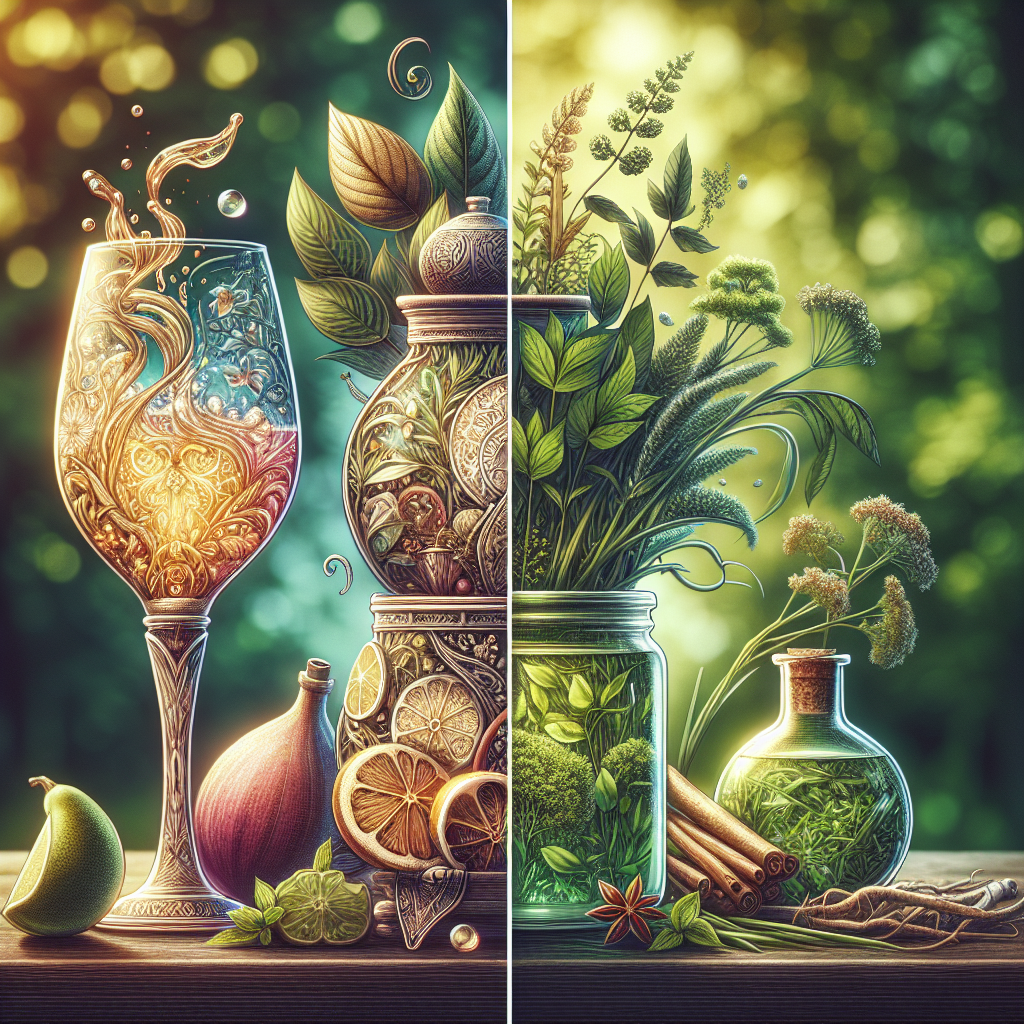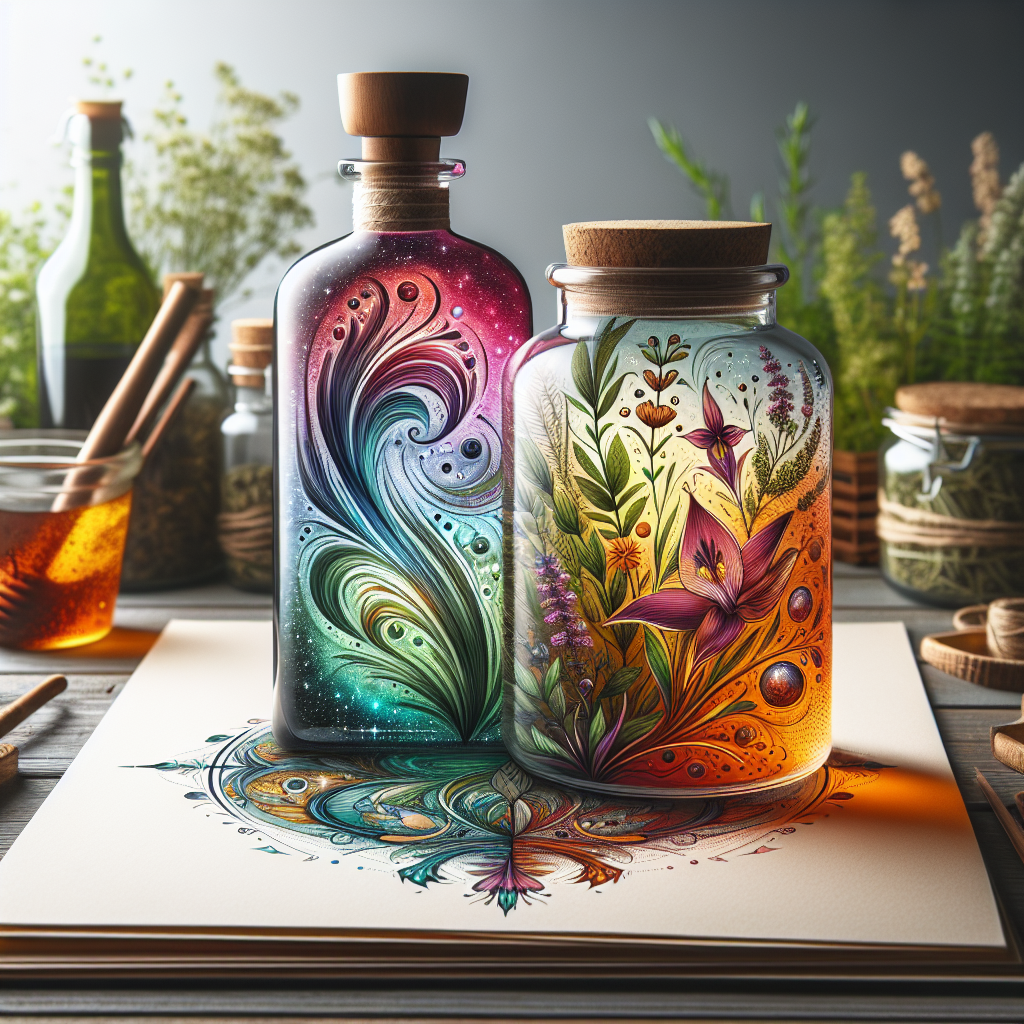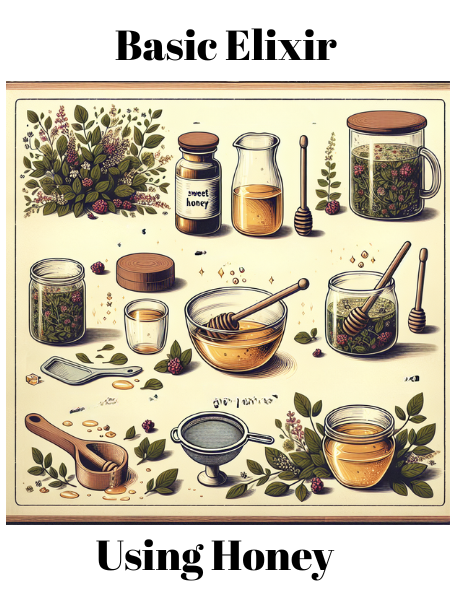Why Use an Elixir or a Tonic?
In a world filled with quick fixes, herbal elixirs and tonics offer something deeper — balance, nourishment, and long-lasting vitality.
An elixir is your instant ally — a concentrated blend crafted to bring quick transformation. Whether you need a burst of calm, clarity, or immune support, an elixir works swiftly to restore harmony when life feels out of sync.
A tonic, on the other hand, is your daily foundation. Taken consistently, it strengthens energy, rebuilds resilience, and supports the body’s natural rhythm — helping you stay centered through every season.
Together, these time-honored remedies bridge ancient herbal wisdom and modern self-care, reminding us that true wellness isn’t about shortcuts — it’s about steady, intentional nourishment from within.
Sip with purpose.
Use elixirs when you need change today.
Use tonics when you’re building strength for tomorrow.
What Is an Herbal Elixir?
 Definition: An elixir is a concentrated, often sweetened herbal liquid designed for targeted effects.
Definition: An elixir is a concentrated, often sweetened herbal liquid designed for targeted effects.
Traditionally alcohol-based for preservation and absorption, elixirs blend plant extracts with carriers such as honey, glycerin, or vinegar.
Typical Components
-
Herbal extracts or tinctures
-
Natural sweetener (honey, maple, glycerin)
-
Aromatic spices or flavor notes
-
Alcohol or vinegar base for extraction
Purpose
-
Boost mood or energy (e.g., Rhodiola or Ginseng Elixir)
-
Calm nerves or support sleep (e.g., Reishi Elixir)
-
Strengthen immunity during seasonal stress
In Traditional Chinese Medicine (TCM), elixirs (yao jiu) are essence-infused formulas that carry medicine deeply into the meridians, restoring internal harmony.
What Is a Tonic in Herbal Medicine?
Definition: A tonic is a gentle, nutritive herbal preparation taken regularly to strengthen and balance the body.
TCM Categories of Tonics
-
Qi Tonics — build energy (Astragalus, Ginseng)
-
Blood Tonics — nourish vitality (Dang Gui, He Shou Wu)
-
Yin Tonics — moisten and cool (Goji Berry, Lily Bulb)
-
Yang Tonics — warm and invigorate (Cinnamon, Epimedium)
Purpose
-
Strengthen organs and immune function
-
Restore resilience and longevity
-
Prevent fatigue and imbalance
Typical Forms
-
Teas and decoctions
-
Powders or capsules
-
Soups and broths (the most traditional)
Elixir vs Tonic — Quick Comparison
| Feature | Elixir | Tonic |
|---|---|---|
| Goal | Targeted, short-term effect | Long-term strength & maintenance |
| Base | Sweetened or alcohol solution | Water decoction or tea |
| Action | Fast-acting & specific | Gentle & cumulative |
| Usage | When you need support now | Daily foundation of health |
| Taste | Sweet or spiced | Mild or earthy |
| Example | Elderberry-Ginger Elixir for immunity | Astragalus-Licorice Tonic for Qi |
 Science Behind the Tradition
Science Behind the Tradition
Modern research supports many traditional claims.
-
Astragalus (Huang Qi) — enhances immune cell activity and reduces inflammation (PubMed PMID 37952511)
-
Ginger (Sheng Jiang) — increases thermogenesis and warms cold-sensitive individuals (PMC 6196930)
-
Reishi (Ling Zhi) — exhibits adaptogenic and immune-modulating effects (PMID 29286578)
Adding credible studies boosts your article’s authority and evergreen shelf-life.
When to Use Each
| If You Want To … | Choose An … |
|---|---|
| Recover from stress quickly | Elixir |
| Build resilience over months | Tonic |
| Calm the mind or lift mood fast | Elixir |
| Maintain energy and immunity | Tonic |
Balanced Approach:
Use a daily tonic like Astragalus tea, and add a seasonal elixir such as Elderberry-Ginger during high-stress or cold seasons.
 How to Make a Simple Elixir or Tonic at Home
How to Make a Simple Elixir or Tonic at Home
Basic Elixir
1 cup raw honey + ½ cup brandy + ¼ cup strong herbal tincture
Mix and store in a dark bottle. Take 1 tsp as needed.
Basic Tonic Decoction
1 tbsp Astragalus root + 4 cups water → simmer 40 min.
Drink 1–2 cups daily for steady Qi support.
(Educational only; consult a practitioner before use.)
Cultural Significance
Across cultures, from Chinese and Ayurvedic to Western herbal medicine, elixirs and tonics share the same philosophy:
prevention over cure, nourishment over stimulation.
Their form may change, but their purpose remains timeless — to bring the body back to balance.
Myth vs Fact
| Myth | Fact |
|---|---|
| Elixirs are just sweet flavored drinks | True herbal elixirs contain active plant extracts |
| Tonics give instant results | Tonics build strength slowly over time |
| You can replace medication with tonics | Tonics support wellness but do not replace medical care |
Shop Authentic Herbal Tonics & Elixirs
Explore lab-tested, GMP-certified Chinese herbs and adaptogens to craft your own formulas:
Need guidance? See our free guide → How to Use Bulk Herbs
Summary: Elixir vs. Tonic — Understanding the Difference
This article explains the key differences between elixirs and tonics in herbal medicine and Traditional Chinese Medicine (TCM). While both support wellness, they serve distinct purposes.
Elixirs are concentrated, often sweetened herbal blends designed for targeted, fast-acting effects — such as boosting mood, calming the mind, or supporting the immune system. They frequently use alcohol, honey, or glycerin as carriers to enhance absorption and flavor.
Tonics, on the other hand, are gentle, nourishing formulas meant for long-term use. They strengthen the body’s systems, restore energy, and promote balance through regular consumption. Common TCM tonics include Astragalus, Dang Gui, and Ginseng.
The article explores how both forms can be used together — elixirs for short-term transformation and tonics for sustained vitality — and offers examples, preparation tips, and scientific references to support their traditional uses.
Ultimately, readers learn that elixirs restore and transform, while tonics strengthen and sustain, making both essential tools in an evergreen wellness routine rooted in ancient wisdom and modern health science.
Author & Publication Information
Written by: Sarah Johnson, M.S. in Holistic Healing
Founder of 1st Chinese Herbs | Herbal Educator | 20+ Years Experience
Credentials
-
M.S. Holistic Healing
-
Specialist in Chinese bulk herbs & teapills
-
Educator on DSHEA-compliant consumer wellness

